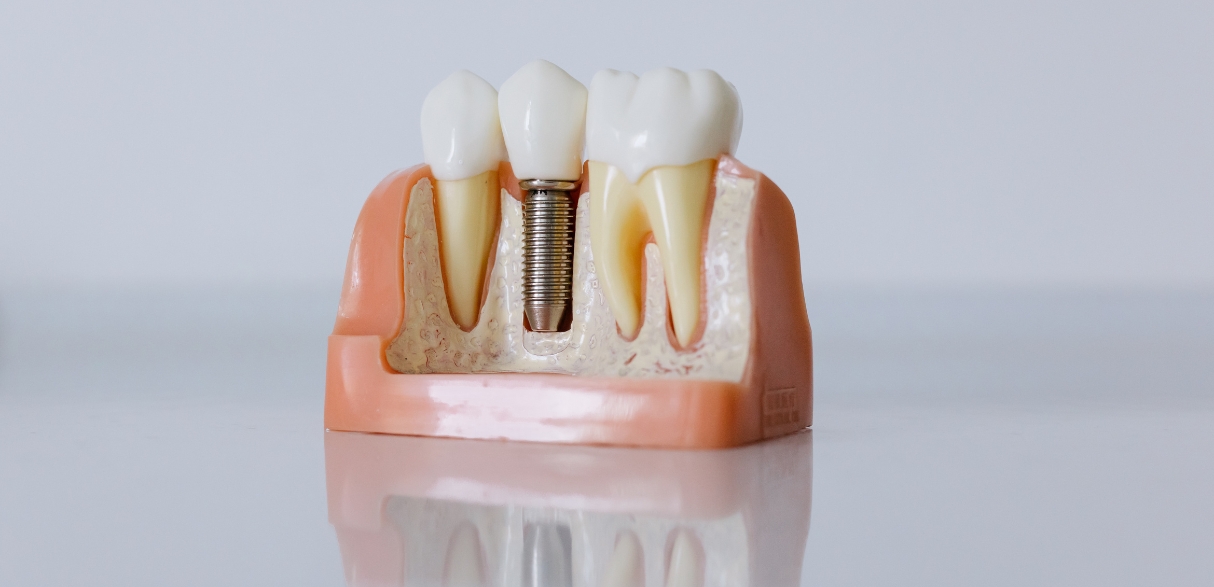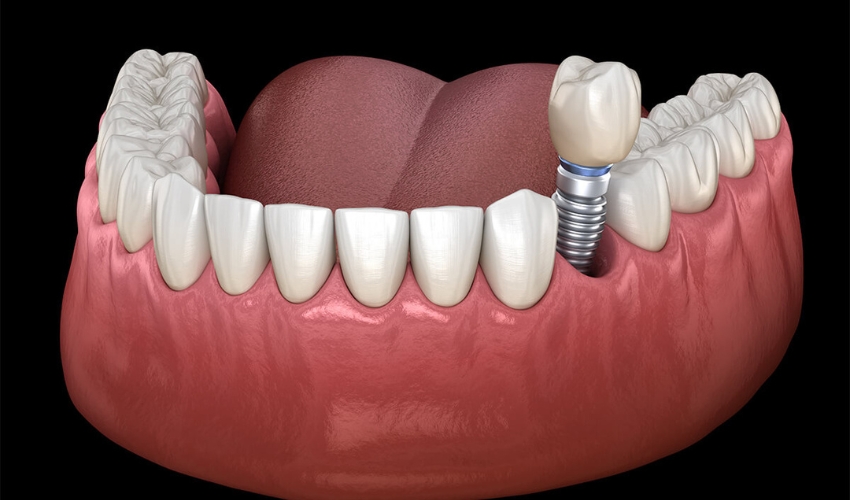
Dental implants are the ideal solution for strong, permanent, natural-looking teeth. However, they aren’t risk-free, particularly for latent infections.
Are you surprised? Most people never think implants will fail after surgery. Everything appears alright until redness, swelling, or pain indicates an infection. Dental implants suddenly become a cause for concern rather than confidence. Downplaying early warnings can cause implant failure and significant discomfort.
How Can Infections Happen?
Infection of dental implants is referred to as peri-implantitis. It is an infection of the gum and bone around the implant. Usually, it starts quietly. Therefore, it’s difficult to notice in its early phase.
Poor oral hygiene permits harmful bacteria to accumulate around the implant. Smoking decreases blood flow and makes healing more difficult and infection more probable.
Conditions like uncontrolled diabetes compromise the immune response and make one more susceptible. In a few instances, surgical contamination or incorrect placement causes infection after the procedure.
Redness, swelling, chronic bad breath, or pain around the implant site are common symptoms. Bleeding while brushing or a loose implant are serious red flags. Early diagnosis and prompt treatment are crucial when it comes to saving the implant.
You should never ignore the warning signs, even if they initially seem minor.
Risk Factors
Certain patient-related conditions make infection more likely after dental implants Pocatello. Uncontrolled diabetes, smoking, or a weakened immune system increase your vulnerability. Even habits like poor oral care have the ability to compromise the health of dental implants.
Procedure-related complications also factor in, including inexperienced surgeons or inferior-quality implants. Selecting a qualified and professional dentist significantly minimizes post-op and surgery complications.
Following post-operative instructions well is another significant influence. When you forget follow-ups or fail to maintain cleaning regimens, it increases your risk of infection. Knowledge of these risks allows you to make safer, informed choices regarding implants.
Preventing Infection
Prior preparation for receiving dental implants significantly lessens infection risks. Good oral hygiene and a medical examination provide a good starting point.
You must select a qualified dentist with well-documented proficiency in implant treatments and safety. Consider strictly following aftercare instructions—gently brush, floss often, and quit tobacco.
In addition, remain consistent with follow-up visits for regular checkups and professional cleanings. Antibiotics can be prescribed to keep bacteria in check during healing. The use of an antibacterial mouthwash will also decrease microbial accumulation.
You must follow all the recovery instructions seriously to ensure successful, complication-free dental implants. Being proactive is the best way when it comes to preventing complications following implant surgery.
What to Do If You Experience an Infection?
Immediately contact your dentist if you experience abnormal pain, swelling, or bleeding. Keep in mind that it is better to receive early care. This is because delayed care can complicate the infection and compromise the stability of the implant.
Your dentist will inspect the region and might take X-rays to diagnose it correctly. Typical treatments are deep cleaning, antibiotics, and occasionally, surgery. In extreme cases, the infected dental implant might have to be removed.
Early discovery provides you with the best possible opportunity to save the implant. Don’t let the pain get out of hand, and act immediately. Regular dental checkups keep minor problems from becoming big ones.
Trust your instincts and call your dentist at the first sign of trouble. Dental implants are life-changing. However, they do need maintenance and attention to prevent infection.
Understanding risks gives you wise steps to safeguard your investment. Most infections can be averted with good hygiene, professional surgery, and timely follow-up.
You must be vigilant to warning signs and never hesitate to consult our dentist. By being educated, you make your dental implants last and perform magnificently for years.


